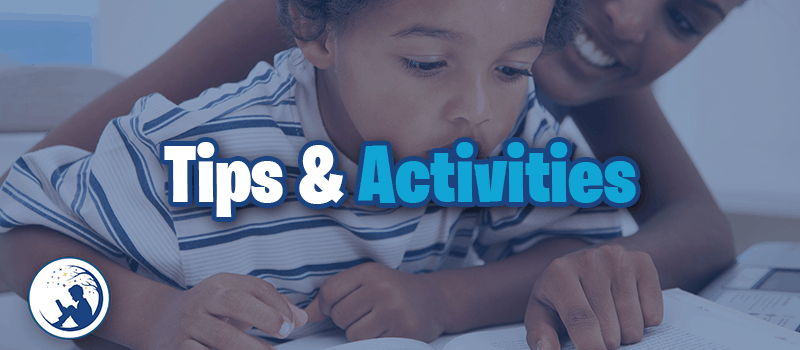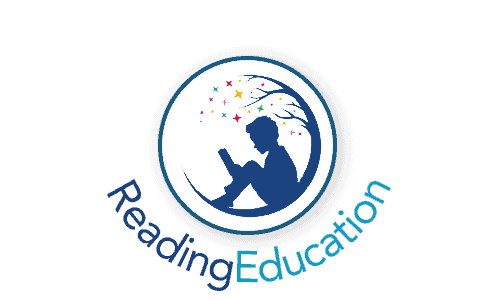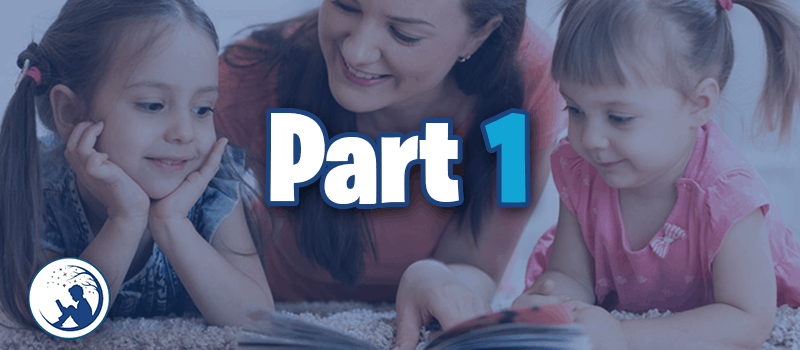Welcome to the very first part of our ‘Teaching Your Child to Read Year-by-year’ series! In this set of articles, we’ll be looking at what your child will be learning at nursery or school and what you can do to further their reading skills at home. We’ll focus on eight age groups, which are as follows: Ages 3-4 years; ages 4-5 years, ages 5-6 years; ages 6-7; ages 7-8; ages 8-9; ages 9-10; ages 10-11. There will be one dedicated article for each age group, as well as links to all the other articles in this series to make navigation between articles as straightforward as possible (see the bottom of this page for links to other articles in this series).
Learning to Read: Children Aged 3-4 Years Old
The preliminary skills your child will learn between the ages of three and four lay a crucial foundation for starting school and learning in general. At this age, the focus is primarily centred around songs, rhymes, and stories – as well as improving talking and listening skills. Fortunately, there are a plethora of fun, enjoyable, and easy ways to foster early reading success from the comfort of your own home, which you can read about in the last section of this article. Before we get to that, let’s take a brief look at what types of actives your child will be partaking in at nursery/pre-school/kindergarten.
What will they be learning at nursery/pre-school/kindergarten?
Prior to school, your child will be learning some essential early reading skills. These typically include:
– Connecting sounds and letters and beginning to learn how phonemes (speech sounds) in words are represented by a letter or letters (graphemes).
– Singing rhymes and songs to help them learn and explore sounds, in addition to learning story language and story structures.
– Telling and listening to stories, which will help to develop both listening and talking skills essential for early reading.
Reading Tips & Activities for 3-4 Year Olds

As mentioned above, there are a multitude of ways that you can help your child develop early reading skills at home. Here are a few examples of games and activities that will help get your child in a position to start reading:
1. Talk Before Reading To Them
Prior to reading a book, talk to your child about the title of the book and the pictures on both the front and back covers. Ask them what they think the story might be about and what will happen. Once you’ve read the book to them, ask them if they liked the story and if so, why.
‘How’ and ‘why’ questions are particularly good for this. For example: ‘How did the fox cross the river?’ or ‘Why was the farmer angry?’.
2. Songs and Rhymes
As discussed above, songs and rhymes help your child to hear and become aware of the sounds in letters and words, as well as helping them to accrue a ‘word bank’ or favourite words they know well. Don’t just stick to songs and rhymes you know though; make up your own and invite your child to join in. It doesn’t matter if they don’t make much sense – just sing about anything and include as many words as possible!
3. Rhyming Games
We love advocating the use of rhymes – can you tell?! All jokes side, rhymes and rhyming are very effective tools for developing the foundation skills required for reading. One game we think is particularly useful – as well as being both fun and easy to play – is ‘I Spy’. When you play ‘I spy’ ask your child to think of words that rhyme with the word either you or they have ‘spied’.
When playing word and rhyming games, ensure that you pronounce all letters, words, and speech sounds correctly and clearly – and make them as short as possible. Don’t prolong letters for the sake of it or add in extra sounds onto the sound. For example, the letter ‘M’ is a short /m/ sound, not a long, continuous /mmmm/ sound or with extra sounds such as /m-uh/.
Thank you for taking the time to read our blog; we really appreciate your time and hope you found this article informative and helpful. If you’re interested in reading the other posts in the ‘Teaching Your Child To Read Year-By-Year’ series, please use the links below:
Part 2 (Ages 4-5)
Part 3 (Ages 5-6)
Part 4 (Ages 6-7)
Part 5 (Ages 7-8)
Part 6 (Ages 8-9)
Part 7 (Ages 9-10)
Part 8 (Ages 10-11)
Thanks again for your time! If you have any comments, questions, or suggestions, please don’t hesitate to get in touch!

